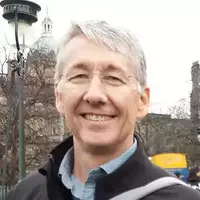What Makes a Good Teaching Video?
Leaders
 Juliette Rooney-Varga, University of Massachusetts-Lowell
Juliette Rooney-Varga, University of Massachusetts-Lowell
 John Bedward, Buena Vista University
John Bedward, Buena Vista University
 Katryn Wiese, City College of San Francisco
Katryn Wiese, City College of San Francisco
 David McConnell, North Carolina State University (Moderator)
David McConnell, North Carolina State University (Moderator)
Summary
Video is increasingly being used as an educational tool in college science courses. Even if we are not assigning videos, students are independently looking to places like YouTube to supplement their learning. This panel will discuss how we can utilize videos in to support our teaching and how the creation of videos can serve as a mechanism to help students learn and develop their communication skills. We will discuss what research tells us about the most effective use of these multimedia tools and review feedback from students about what they think are the features of a useful video. We encourage the audience to come prepared for a discussion of the role of video both inside and outside the geoscience classroom.
Juliette Rooney-Varga:
Engaging Students and Society Through Student-Produced Videos on Climate Change Science
Student-produced video projects offer a powerful means to meet many of the challenges of geoscience and climate change education, while simultaneously building digital media literacy and communication skills. Production and dissemination of a short, effective video require extensive pre-production research, critical thinking, writing, planning, collaboration, and creativity. Students become educators, learning through an effort to teach others. Here, we'll discuss resources and findings from the Climate Education in an Age of Media (CAM) Project, which aims to empower students to not only learn climate change science, but to add their voices to societal discourse.
John Bedward
Semiotics, Information and Interactive Design: Informing Geoscience Education Multimedia Teaching and Learning
Increasingly, educators are leveraging the power of multimedia tools and resources to communicate scientific concepts to a range of learners. The design decisions involved in creating and providing geoscience content requires a multidisciplinary approach, which is not always available to the content expert. Greater collaboration and understanding between content, pedagogical and design experts is needed to support student multimedia learning.
Katryn Wiese
Video use: What do students say they want?
In this presentation, we will review student use of videos in an Oceanography class over the past four years, including top things students like and don't like, strategies that have improved video interaction and use, and impacts on class engagement and outcomes. We will also describe the On the Cutting Edge educational video collections and design resources available to assist those who want to use videos in a multitude of ways and design their own.
